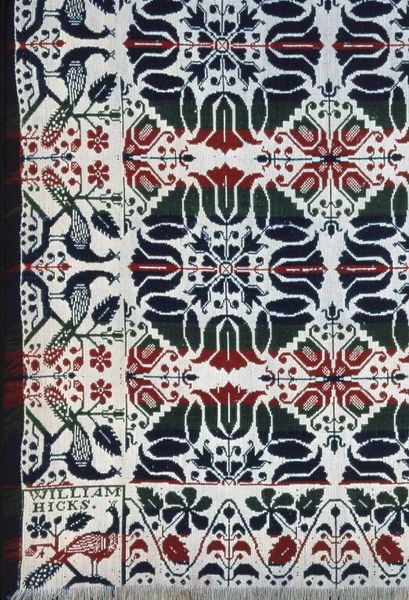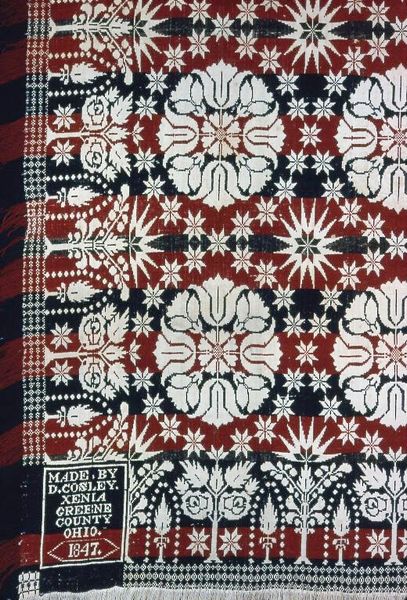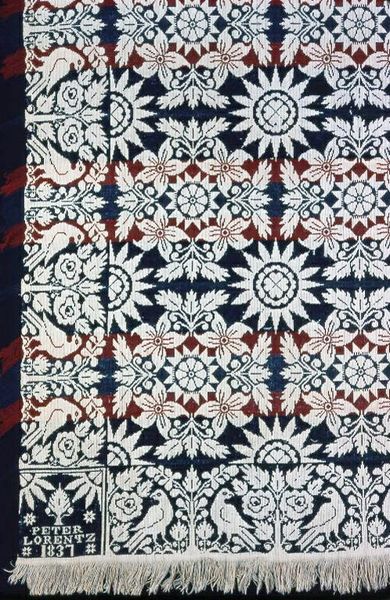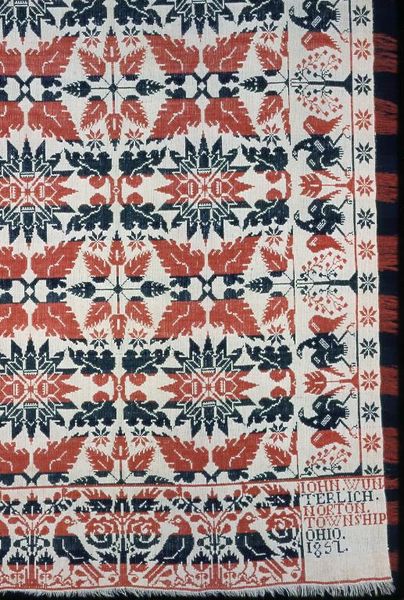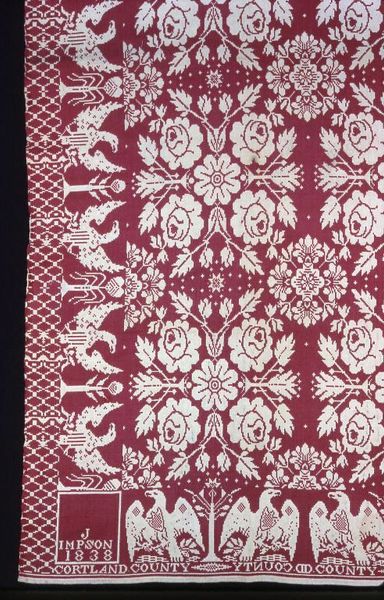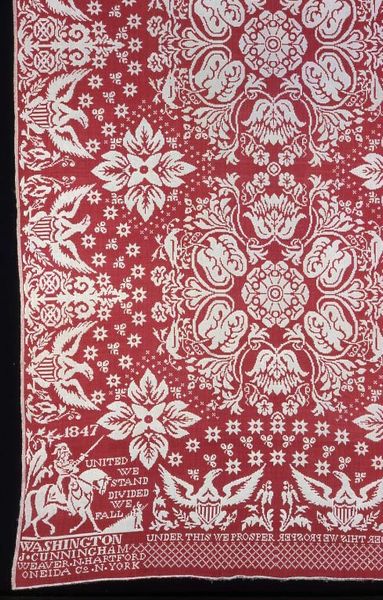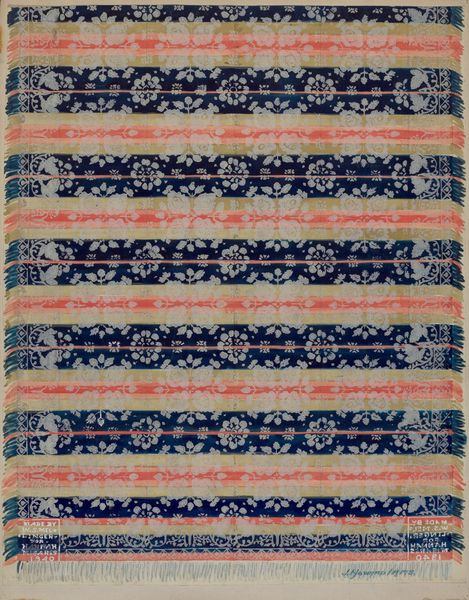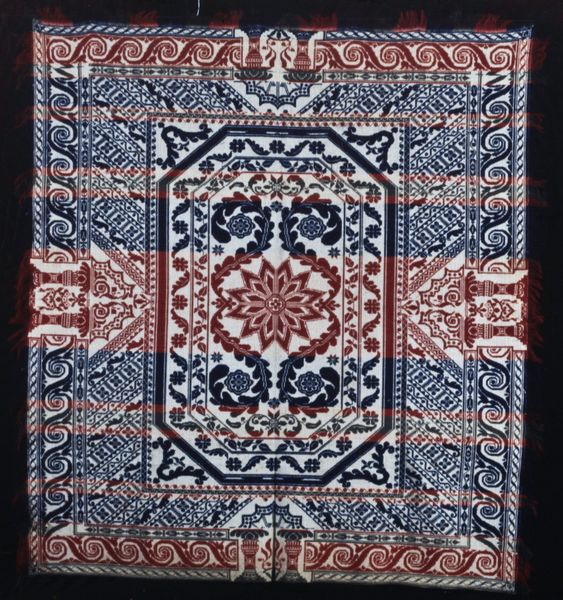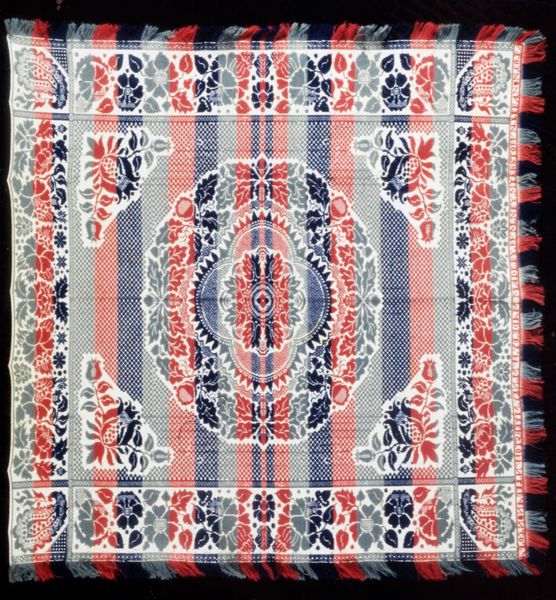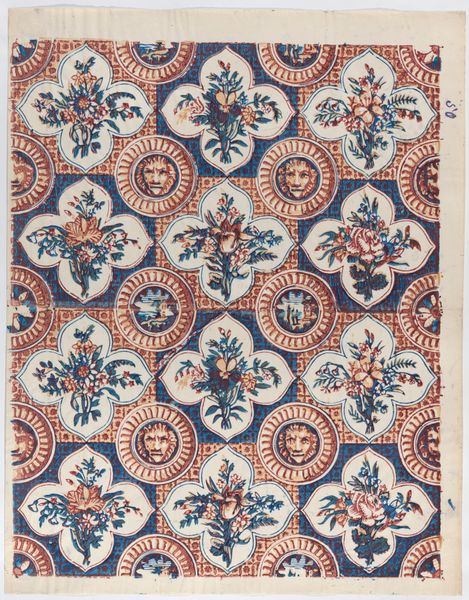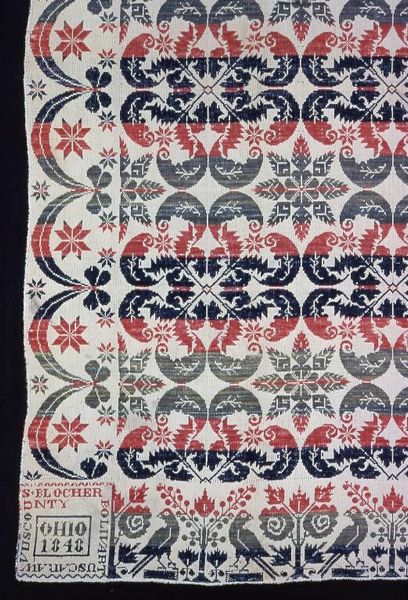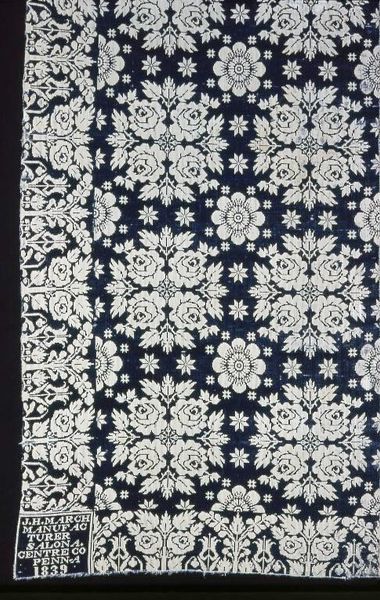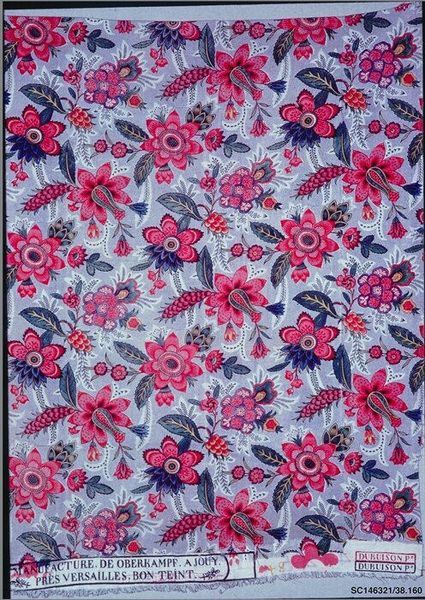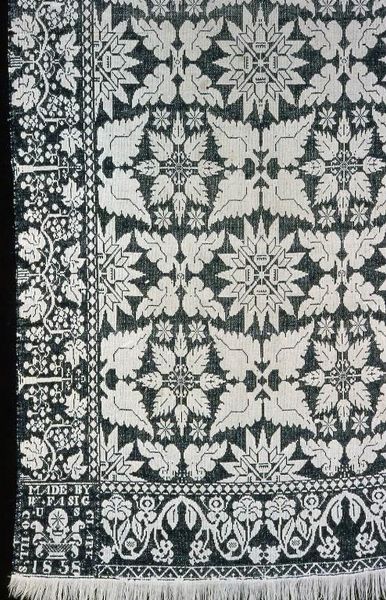
fibre-art, print, weaving, textile
#
fibre-art
#
16_19th-century
# print
#
pattern
#
weaving
#
bird
#
textile
#
orientalism
#
decorative-art
Dimensions: 227.3 × 202.9 cm (89 1/2 × 79 7/8 in.) Repeat: 32.3 cm (12 5/8 in.)
Copyright: Public Domain
This coverlet was made in 1853, likely in the United States, by Matthew Rattray. It’s made of wool, woven in what’s called double cloth. This complex process involves two sets of warps and wefts, allowing for intricate patterns to emerge. The coverlet’s design features a symmetrical arrangement of floral motifs, birds, and even an American eagle, woven in red, white, and blue. Notice the precise, almost mechanical, quality of the weave. This suggests it was likely produced on a Jacquard loom, an invention that automated pattern weaving. The Jacquard loom, while innovative, also changed textile production, impacting skilled weavers and traditional craft practices. The use of this technology here raises questions about the intersection of craft, industry, and national identity in 19th-century America. It prompts us to consider the labor involved, and the complex relationship between handmade and machine-made. By examining the materials, techniques, and context of this coverlet, we can appreciate its intricate beauty, and better understand the historical forces that shaped its creation.
Comments
No comments
Be the first to comment and join the conversation on the ultimate creative platform.
